Wake Forest Faculty reflect on Mellon ACE Fellowship
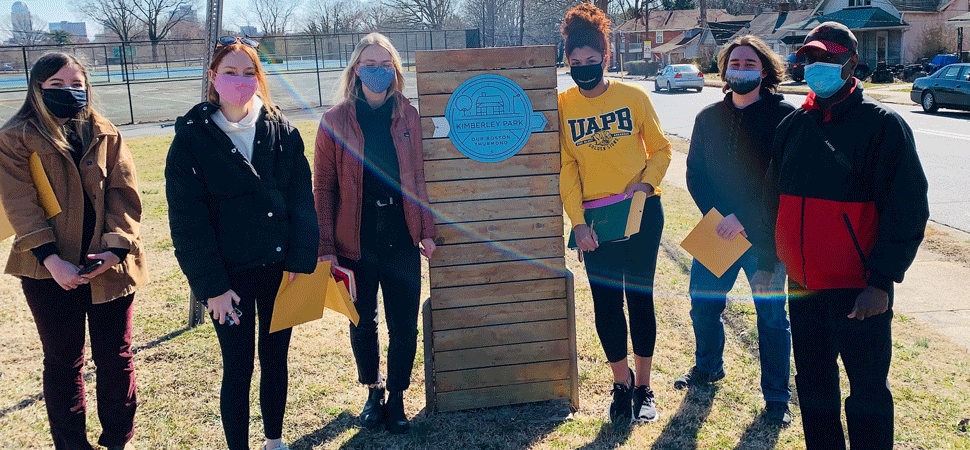
Students from Dr. Weiss’ Environmental Journalism class do a neighborhood walk through Boston Thurmond with Mr. David West, a Boston Thurmond resident and member of the Boston-Thurmond Community Engagement Roundtable.
As the 2020-21 academic year comes to a close, Wake Forest faculty are in the process of completing their time as Mellon Academic Community Engaged (ACE) Fellows. Funding for the fellowship was made possible by the Andrew W. Mellon Foundation after Wake Forest was awarded $850,000 to expand its community-based partnerships through engaged teaching and research in the humanities with “The Humanities Engaged: Generating Learning, Remaking Community” in 2018.
The ACE Fellows program, led by the Office of Civic & Community Engagement, promotes and sustains community-engaged teaching, research, and scholarship for Wake Forest faculty. Throughout the two-year program, Fellows develop community-based projects congruent with their research, scholarship, and/or teaching interests.
Learn more about the 2019-21 Mellon ACE Fellows cohort below.
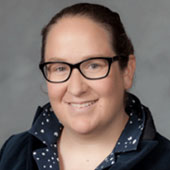 Meredith Farmer
Meredith Farmer
Assistant Teaching Professor of Core Literature and Faculty Affiliate, Energy, Environment & Sustainability
Through her work as a Mellon ACE Fellow, Dr. Meredith Farmer furthered her partnership with the historic Old Salem Museum & Garden and its Hidden Town Project by creating “Hidden Town: A Virtual Exhibit.” The Project was an initiative created to research the repressed history of the enslaved Africans and African Americans who lived in what is now known as “Old Salem.”
In response to the work she has completed over the years with Old Salem, Dr. Farmer commented, “Dr. Farmer commented, “we live in a community that isn’t abstractly related to slavery, but is directly built upon foundations that are inseparable from the labor of those people who were forcibly enslaved.”
As part of her work, Dr. Farmer worked alongside Wake Forest students to create a virtual exhibit, so that the research from the Hidden Town Project was made more accessible to the community, in particular with middle school students in mind. The virtual exhibit, available to the public online, is composed of audiovisual presentations alongside additional educational resources.
Through her work as an ACE Fellow, Dr. Farmer hopes to educate both children and the general public about slavery in a meaningful way – particularly the history of slavery.
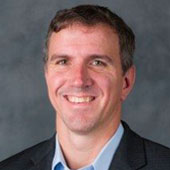 Seth Hayden
Seth Hayden
Associate Professor of Counseling, Clinical Mental Health Program Coordinator
Dr. Seth Hayden’s work as an ACE Fellow has focused on providing career support to military members and veterans. While his original hope was to offer his career development program as a face-to-face resource, the ongoing COVID-19 pandemic forced him to re-access his original goal. Now, the program has been transitioned to a primarily virtual format, which has ultimately increased access and even allowed Dr. Hayden to consider expanding the program to include both military veterans as well as the broader community.
“I appreciate the ACE Fellows program because it aligns with Wake Forest’s mission to support community-engaged scholars,” said Dr. Hayden. “Ultimately, it’s not just about the work I do within my own discipline, but the work I do in relation to the community, and the impact that it has within that space.”
As his work continues outside of the Fellowship, Dr. Hayden hopes that his project will help provide continued support and resources for military veterans, and more broadly the Winston-Salem community. Dr. Hayden has worked with Marquita Wisley, an AmeriCorps VISTA through the Winston-Salem Community Action Coalition, to strategically plan for the launch of the Community Career Clinic, a centralized resource for individuals in the community to access career counseling resources. The clinic will begin accepting participants in the Summer and Fall of 2021.
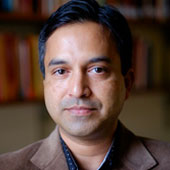 Raisur Rahman
Raisur Rahman
Associate Professor, History, Co-Director, Middle East and South Asia Studies
When selected as an ACE Fellow in 2019, Dr. Rais Rahman was interested in enhancing student learning in his classes through community engagement, as well as developing a richer understanding of the interplay between the local and global.
Through his course, “India and the Global Economy,” Dr. Rahman has been able to connect his students with a variety of individuals from the global and local community in an effort to show them what can be learned when we take a closer look at our communities. “Through this course, we’ve been able to meet with a variety of speakers to talk to us about what we can learn from our communities,” explained Dr. Rahman. “When you take a closer look at the community – whether it’s right here in Winston-Salem or elsewhere – it ultimately helps you understand what is going on in the global economy.”
As the semester comes to a close, students are completing their final projects where they’re exploring issues of social mobility and economic development on a specific topic – such as poverty, women in the workforce, or sustainability – through a case study completed by a local community partner.
“I used to think that the ACE Fellows program was just for those individuals who explicitly taught about the community, and really wasn’t sure of what I could do,” said Dr. Rahman. “However, the way that I have been able to illustrate both my teaching and work about India and world history by looking at our local community has been outstanding. Not only have I become more grounded in that way, but I would like every student at Wake Forest to be more mindful about how they can both connect with and consider how they can give back to the community.”
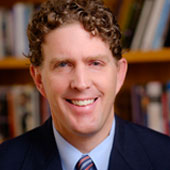 John Senior
John Senior
Assistant Dean of Vocational Formation and Director of the Art of Ministry program
For the past two years, Dr. John Senior has used his time as an ACE Fellow focused on training Wake Forest divinity students in public poetry.
Students pursuing their Master of Divinity are required to complete internships as part of their coursework. Through their internships, Dr. Senior was hoping to introduce them to public poetry as an alternative form of proclamation and public witness to utilize throughout their internship experience. To get the program off the ground, he invited LB the Poet, a local poet educator who educates young people on social justice issues through spoken word workshops, to come and speak with Wake Forest students, while also teaching them the craft.
After a few workshops the global pandemic began, shifting classwork and internships into a remote setting, and ultimately halting the work between LB the Poet and Dr. Senior’s students. “As internships went remote, everyone’s circumstances changed, and it affected how students were able to participate with not only their internships but the programs we were hoping to run.”
Outside of his work with his students, Dr. Senior credits the cohort with allowing him to gain a better understanding of the Winston-Salem community.
“Through conversation with the other Fellows, I learned about the different issues facing our city and how we were each working on addressing an issue through our work,” said Senior. “It ultimately gave me a more complete understanding of our city.”
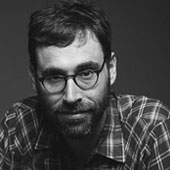 Ivan Weiss
Ivan Weiss
Assistant Professor of the Practice, Journalism
During his time as an ACE Fellow, Dr. Ivan Weiss developed Environmental Journalism – a project-based course that looked at the residents of a community in conjunction with the built environment. After exploring a couple of different neighborhoods, he settled on Boston-Thurmond – a community just north of downtown Winston-Salem – for its active neighborhood association and community initiative to develop a neighborhood that supports the wishes of its residents.
The course launched this semester, teaching students about community-engaged media, while also benefiting the community. Over the course of the semester, students have examined the issues that were brought up by residents – looking at the areas where they would like to see change, and how they are going about that change – but also took a look at the positive aspects of the community. Since both the community and the course are in the beginning stages, Dr. Weiss is already looking at making this a long-term documentary project.
“It is essential that growing communities like Boston Thurmond have access to art and storytelling,” said Dr. Weiss. “The ACE Fellows program helped me lay all the pieces in place, connect with the community and figure out how to not only make that possible but to also make it an equitable project.”
Through the work of Dr. Weiss and his students, the neighborhood association (Boston-Thurmond Community Engagement Roundtable) will receive all of the raw footage that was filmed throughout the course, allowing them to use the footage, as well as an honorarium for participating.
“The ACE Fellows program has been crucial in helping me to develop what I believe can become a long-term project between the Wake Forest Journalism program and the Boston Thurmond community,” said Dr. Weiss. “Without the support of the program, I’m not sure if this project could have even happened in the same way, or to the extent that it did.”
